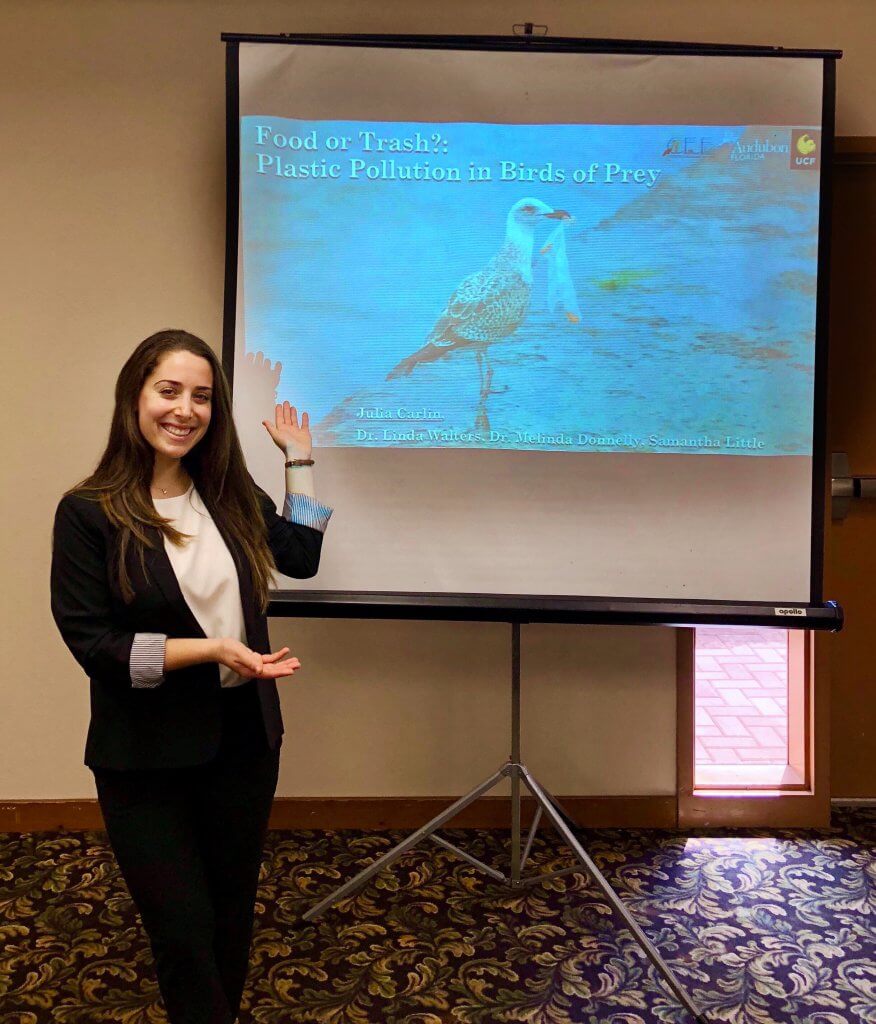This month we met with Distinguished Undergraduate Researcher, Julia Carlin, to discuss her research experience at UCF. She conducted research on the harmful effects of microplastics on Indian River Lagoon wildlife with Dr. Linda Walters in the Department of Biology.
Julia’s most meaningful research experience required her to utilize resources both on and off campus. She states that she first began to conduct research with Dr. Linda Walters’ research group and after a few months collaborated with the Audubon Center for Birds of Prey in Maitland, FL. Julia started to develop her research topic when she noticed plastic pollution in a population of birds. Through investigating the stomachs of dead birds, she noticed an abnormality in the amount of microplastics found in their digestive system. By networking with the Audubon Center and using resources in Dr. Walters’ lab she was able to investigate the topic further. Her work was noticed by others in the field, which resulted in an invitation to present at the 2018 Indian River Lagoon Symposium. Carlin won first place for best student presentation.
Even highly successful projects like Julia’s can hit the occasional snag, or tough period. Julia told us that when she first started the research, no information on plastic pollution in birds of prey existed. For months, the techniques she used to study the particles left in the digestive system of the birds didn’t work, which of course caused a lot of frustration. Eventually, Julia puzzled out the root cause and developed her own method. She said, “It went from the most frustrating thing to the most satisfying feeling, with people asking [me] for [my] methods.” This is exactly what motivates Julia to continue her work. ”The thing about research is the bigger picture! Research is so niche but getting results and presenting it to people to learn about how plastic affects the eco-system brings joy to the work.”
When asked about what advice she would give to potential undergraduate researchers, she said “Put yourself out there and bring passion to whatever you do. The whole purpose of undergraduate research is to try things you may end up falling in love with.”
“Something so beautiful that I’ve realized in these past four years is that knowledge brings passion!”
Her passion is evident in the work she conducts and the plans she has set forth for herself. She applied for vet school and hopes to conduct further research while in vet school to help create better techniques to address wildlife conservation while bringing awareness to the field.
